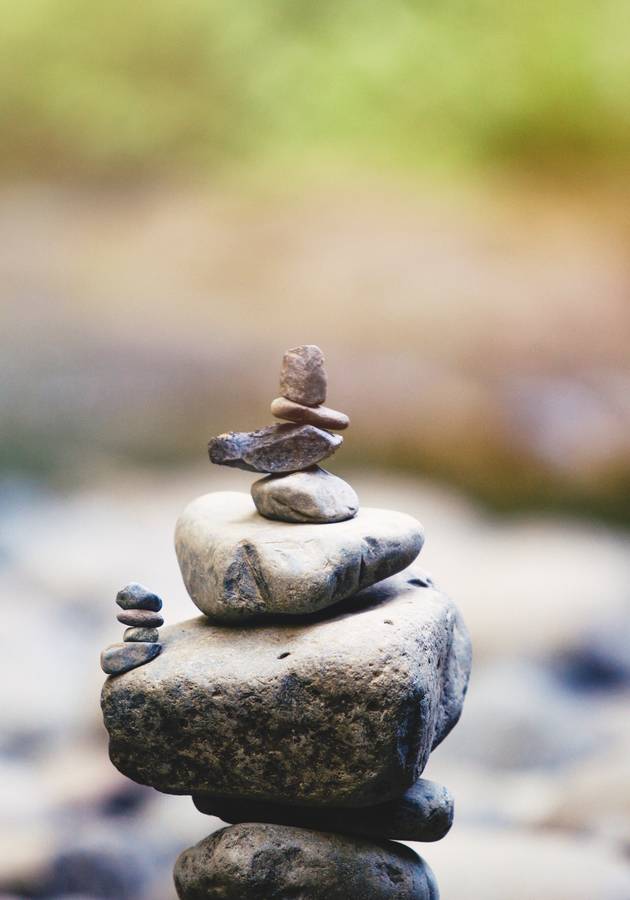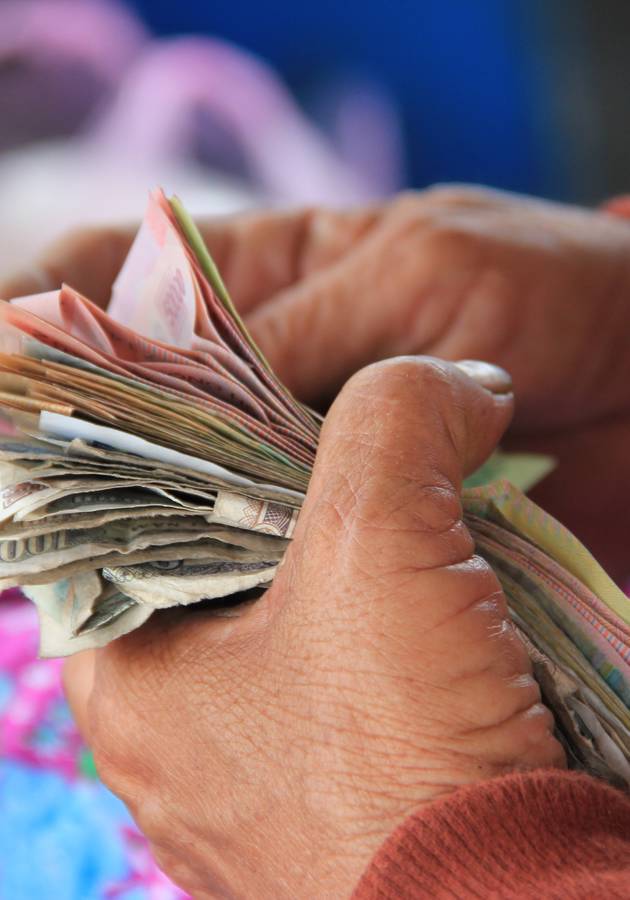The Buddhists called it upekkha. The Muslims – aslama. The Hebrews – hishtavut. The second book of the Bhagavad Gita, the 700-verse scripture that forms a part of the longest epic poem known to man, the “Mahabharata,” speaks of something called samatvam, or an “evenness of mind – a peace that is ever the same.” The Greeks used several words to describe this state: euthymia, hesychia, and ataraxia; the Epicureans particularly favored the last of these. After, the early Christians that came after them translated the word into Latin as aequanimitas. Several centuries later, a few German tribes found a word for it that the readers of this summary instinctively understand today: stillness.
According to Ryan Holiday – an entrepreneur, marketer, media strategist, modern Stoic, and, in the words of bestselling author Steven Pressfield, “a national treasure” – as evidenced by the very title of his most recent book, “stillness is the key to, well, just about everything.” Holiday is not exaggerating, but in case you need a detailed list instead of an indefinite pronoun, allow us to quote him: “stillness is the key to thinking clearly, to seeing the whole chessboard, to making tough decisions, to managing our emotions, to identifying the right goals, to handling high-pressure situations, to maintaining relationships, to building good habits, to being productive, to physical excellence, to feeling fulfilled, to capturing moments of laughter and joy… to being a better parent, a better artist, a better investor, a better athlete, a better scientist, a better human being. To unlocking all that we are capable of in this life.”
But, then again, you already know that because stillness is certainly not something you haven’t tasted and felt before. Which is why the aim of Holiday’s book is quite simple: not to invent the wheel anew, but to merely show you how to uncover and draw upon the stillness you already possess. The premise is even simpler: people can achieve stillness only if they succeed in harmonizing the three domains of their being: composed of the mind, the spirit, and the body. Suitably, the three parts of the book bear the names of the domains, each of them containing ten relevant and highly practical pieces of advice. For our summary, we chose our favorite six – two from each domain.
The domain of the mind
“We must cultivate mental stillness to succeed in life and to successfully navigate the many crises it throws our way,” writes Holiday. “We must learn to think rationally and clearly about our own fate.” More specifically, to achieve mental stillness we must be always fully present, empty our mind of preconceptions, take our time, sit quietly and reflect, reject distraction, weigh advice against the counsel of our convictions, and deliberate without being paralyzed.
Limit your inputs
Even though quite eccentric, Napoleon was never negligent in his duties or out of touch with his government or his soldiers. And yet, he made it his habit to delay responding to the mail! It is said that his secretary was specifically instructed to wait for three weeks before opening any letter addressed to him. When that finally happened, Napoleon reveled in the realization that many “urgent” issues had simply resolved themselves and no longer required a reply.
Centuries before smartphones and instant messaging, Napoleon was quite aware of one of the biggest issues of modern life, the nature of which is perfectly summed up by the American economist and Nobel Prize winner Herbert Simon in a single sentence: “a wealth of information creates a poverty of attention.” Dubbed by sociologists and political scientists “the CNN Effect,” this problem was once exclusive to presidents and generals, but now it is what takes away the pleasure of the majority of humans. You’ve got to put an end on that. Block calls, put a “Do not disturb” sign on your door, visit news sites only once in a while. You have limited time on this planet, so you better limit your inputs and go on an information diet. It is healthy and beneficial. “If you wish to improve,” Epictetus once said, “be content to appear clueless or stupid in extraneous matters.” Most of them are.
Empty the mind
Shawn Green retired before the start of the 2008 MLB season as a two-time All-Star right-fielder, but if there’s one thing he is guaranteed to be remembered by it’s certainly the fact that, on May 23, 2002, he achieved "baseball's greatest single-game accomplishment," hitting four home runs in a rubber match between the Los Angeles Dodgers and the Milwaukee Brewers. Baseball fans will probably remember that this accomplishment came after a long-lasting hitting slump for Green which culminated in calls for benchings and rumors of trades during the series with the Brewers. Green managed to overcome them – and his bad form – by turning to Buddhism. Instead of overthinking and overanalyzing the situation he was in, he decided to think about and analyze absolutely nothing, and emptied his mind from all distractions by repeating to himself an old Zen “call-to-action” proverb: “Chop wood, carry water. Chop wood, carry water. Chop wood, carry water.”
And, indeed, the proverb emptied Green’s mind and the rest, well, is history. It is also a valuable lesson for you if you feel that the only way to rise above your problems is by scrutinizing them from top to bottom. The rule is simple: if you’re thinking about them rather than doing something with them – then you’re probably thinking too much. Close your eyes. Clean your mind from external influences. Then start chopping.
The domain of the spirit
If our mind is where we deal with our crises, our soul is the place where we secure our happiness, contentment and moderation. It is for this reason that stillness is impossible without some spiritual commitment. Those who want to shelter themselves from unhappiness, discontent, gluttony, and perturbation, must develop a strong moral compass, steer clear of envy and jealousy and harmful desires, come to terms with the painful wounds of their childhood, cultivate relationships and love in their lives, place belief and control in the hands of something larger than themselves, understand that there will never be “enough,” and, finally, practice gratitude and appreciation for the world around them.
Enough… is enough
It is said that the writers Kurt Vonnegut, the author of “Slaughterhouse Five,” and Joseph Heller, the author of “Catch-22,” were once guests at a party in a fancy neighborhood outside New York City. Their host was a boring billionaire. Standing in his palatial second, Vonnegut asked Joseph an indecent question: “Joe,” he said, “how does it feel that our host only yesterday may have made more money than your novel has earned in its entire history?” “I’ve got something he can never have,” Heller replied. “And what on earth could that be?” Vonnegut asked. “The knowledge that I’ve got enough.”
There are two paths you can go through your life: you can either be a slave to your desires or learn to control them. The word “enough” – or as Ryan deems it, the “e-word” – is the first step toward becoming a captain of your fate and a master of your soul. “Nothing is enough for the man to whom enough is too little,” said Epicurus millennia ago. Don’t be that man. Embrace temperance and never forget that stillness lives in the “enough” and never in desires.
Bathe in beauty
Though often seen as a “dark, depressive Stoic,” the Roman emperor and philosopher Marcus Aurelius loved beauty with all his being and often found it in some pretty ordinary things: the splitting of bread as it bakes, the stalks of ripe grain bending low, the “charm and allure” of nature’s. Even more strikingly, Anne Frank managed to find beauty and write about it while in hiding from Nazis. “As long as this exists,” she wrote in her diary on February 23, 1944, after catching a glimpse of the sun through a small window in her attic, “as long as this sunshine and this cloudless sky are above us, and as long as I can enjoy them, how can I be sad?”
That single sentence should be evidence enough that even in the worst circumstances, beauty still exists – and it has a calming, cleansing influence. Bathe in it as often as you can. Don’t let it escape you, advises Holiday. “See the world as the temple that it is. Let every experience be churchlike. Marvel at the fact that any of this exists – that you exist. Even when we are killing each other in pointless wars, even when we are killing ourselves with pointless work, we can stop and bathe in the beauty that surrounds us, always. Let it calm you. Let it cleanse you.”
The domain of the body
Though we often ignore it, it is only a fact that “we must treat the vessel we inhabit on this planet well – or we will be forced to abandon it early.” The body, as they say, keeps score, so don’t think that you can fool it: you’re merely fooling yourself if you’re not taking care of your body. Cultivate these few traits to master this, the third and last domain of your being: rise above your physical limitations; find hobbies that rest and replenish you; develop a reliable, disciplined routine; spend time getting active outdoors; seek out solitude and perspective; learn to sit – to do nothing when called for; get enough sleep and rein in your workaholism; commit to causes bigger than yourself.
Build a routine
Each and every morning, Mr. Fred Rogers woke up at 5 a.m. and spent the next hour praying. Then, after making sure that he weighs precisely 143 pounds, he would head to the Pittsburgh Athletic Club, where he would swim his morning laps before getting on the set of his television show. Once the shooting would be done, he would leave home for an afternoon nap, dinner with his family, and a 9:30 bedtime. Boring? Well, “the truth is that a good routine is not only a source of great comfort and stability, it’s the platform from which stimulating and fulfilling work is possible.”
It’s almost ironic that most people associate routines with confinement and boredom. In truth, they are portals to effectiveness and even holiness, because, after some time, routines become rituals and rituals redefine one’s attitude toward everything. In essence, if there’s one thing that makes extraordinary lives possible – it is certainly discipline. All of your idols, all of the great people of history became what you know them by because they decided, early in their lives, to commit to a certain repetitive schedule, to rebuild their lives around a set of rigid but freely chosen and devised routines. You know why? Because routines are how one takes control of his time and masters a skill. “A master has a system,” writes Holiday. “A master turns the ordinary into the sacred. And so must we.”
Be a human being
Even though all those productivity and time management books may have made you doubt it, you can rest assured that human beings are not machines. They are, forgive us the tautology, human beings – that is to say, animals with biological limitations. Sleep less than you’re supposed to or work more than you’re built for – and you’re bound to feel the consequences of these choices sooner rather than later. True, sometimes an all-nighter might seem necessary – we all have important duties and obligations to everyone – but, more often than not, it’s exclusively your choice whether you’ll skip sleeping tomorrow or not.
They say that work will set you free. Well, you ought to know that it was the Nazis that made that malicious lie popular by engraving it over the gates of Auschwitz. Holiday is absolutely sure that the Russians had it better: “work just makes you bent over,” one of their sayings go. “Work will not set you free,” Holiday writes, “It will kill you if you’re not careful.” And he does mean it in the most literal sense possible. Don’t give in your body, your temple, to death before its time. After all, it’s human being, and not human doing for a reason. Don’t overwork yourself. Moderation. Being present. Knowing your limits. This is the key.
Final Notes
A fitting finale to his Stoicism-themed tetralogy of self-help books that began in 2014 with “Obstacle Is the Way” and continued with “Ego Is the Enemy” and “The Daily Stoic” in 2016, “Stillness Is the Key” offers everything we’ve come to expect from Ryan Holiday by now: simple sentences, actionable advice, clear conclusions – and numerous references to Epictetus, Seneca, and Marcus Aurelius sandwiched between anecdotes from the lives of modern luminaries coming from all walks of life.
Even though Ryan Holiday might be criticized for recycling some old ideas and even older recommendations here in a way that merely fits a new purpose, “Stillness Is the Key” is indeed (to quote Cal Newport) “a must-read for anyone feeling overwhelmed by the frenetic demands of modern life.” Meaning: the book is somehow thought-provoking even when it is derivative, engaging even when it is prosaic, atypically inspirational even when it is typically self-help.
12min Tip
Turn off your smartphone for just one hour today. Spend it reading or meditating in the solitude of your thoughts, distraction-free and fully concentrated. You’ll thank us later.





























